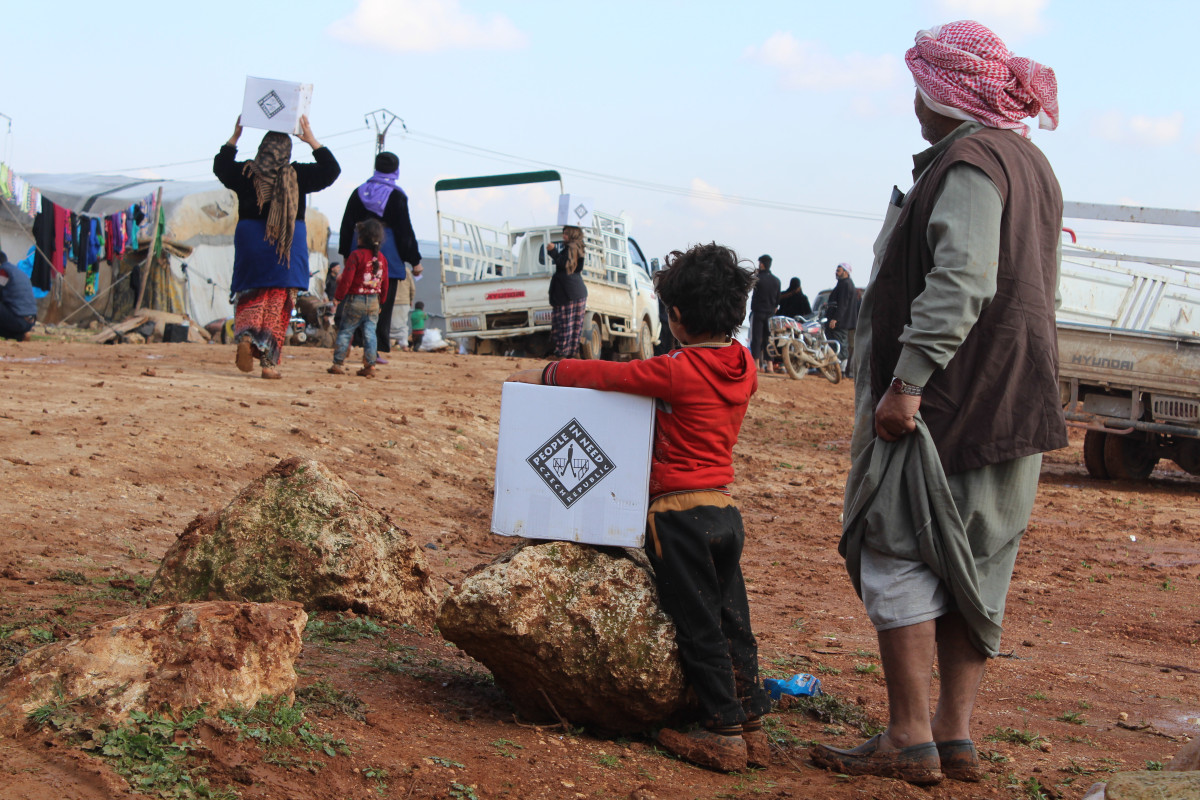Empathy drives Om Ruba every day to help suffering people in Syria after she had to flee her home
Published: Aug 12, 2021 Reading time: 3 minutes Share: Share an articleOn the occasion of World Humanitarian Day, we bring you the story of our exceptional colleague, Om Ruba. Even those well acquainted with the daily struggles of the Syrian people cannot fail to be moved by her story. While having every excuse to express despair and bitterness at her situation, the unifying emotion of her account is rather one of relentless empathy. This is what drives her day to day work for PIN in one of Syria’s most dangerous regions.

As the sound of artillery reverberated throughout the streets of her home in eastern Aleppo in 2016, Om Ruba fled with her husband and three children. Not a decision she took lightly given how much the family had already sacrificed just to remain.
The struggle to remain
For the three years prior to this, Om Ruba had been a highly active community member, dedicating herself to supporting local children whose education had stalled as the war intensified.
“In 2013 I started teaching kids in my neighborhood because of school closures in eastern Aleppo. Myself, along with a group of other university students began using Mosques as teaching spaces for children, giving lessons on Arabic, Qur’an, science and mathematics. I used to help my team rescue and treat the wounded and document the attacks and bombings,” said Om Ruba.
That same year she lost a brother due to shelling, with another losing his leg.
Over the next three year’s Om Ruba dedicated herself to providing protection and psychological support within local Syrian NGOs, as well as managing a kindergarten.
Forced to flee
Om Ruba described the events which triggered her flight from Aleppo in 2016: “The displacement had started as the eastern neighborhoods of Aleppo fell under two sieges: the first one lasted for 40 days and the second for four months. During this time, the shelling and airstrikes went on day and night. Food became scarce. When available food was very expensive, especially sugar, rice and oil.”
Two years later, Om Ruba joined PIN as a MEAL assistant, helping teams with project assessment and monitoring by spending each day in contact with families in need. As someone who has lived through the worst of the conflict herself, few people are better placed to understand the specific needs of people living in displacement.
Working for PIN
“I love helping them and trying to convey their suffering and provide the necessary assistance to them because the organization cares about people’s dignity and wellbeing.”
But what does it mean to work on the ground in northwest Syria? It means, “having to work in all the different circumstances and conditions, especially during bombings, attacks and emergencies. Add to this the harsh weather conditions, extreme heat and extreme cold. Add to this, having to travel long distances to remote places and villages to deliver aid to those who need it.”
There is also the gender consideration: “Sometimes society does not accept that women work. I have to be strong, manage things and prove myself.”
Despite living through every blow of the conflict side by side with PIN’s target communities, Om Ruba’s motivation is connection: to get ever closer to those we help. “My work with PIN brought me closer to the people and their suffering, especially the widows and those who have no source of income. It made me more affected by the situation of people and more determined to help them. Sometimes I try to communicate with other organizations to try to secure the necessary support or refer those vulnerable people to other NGOs.”



